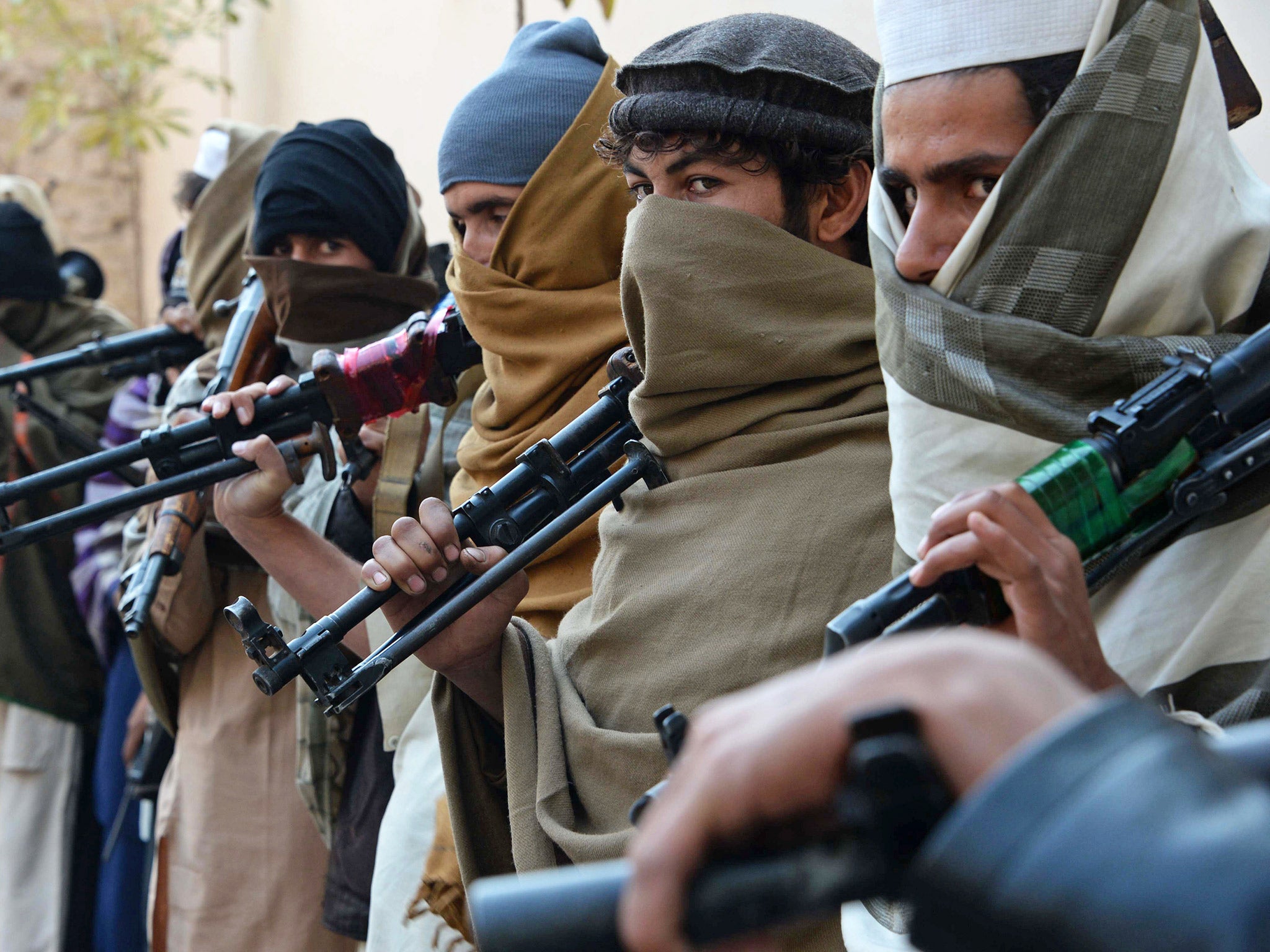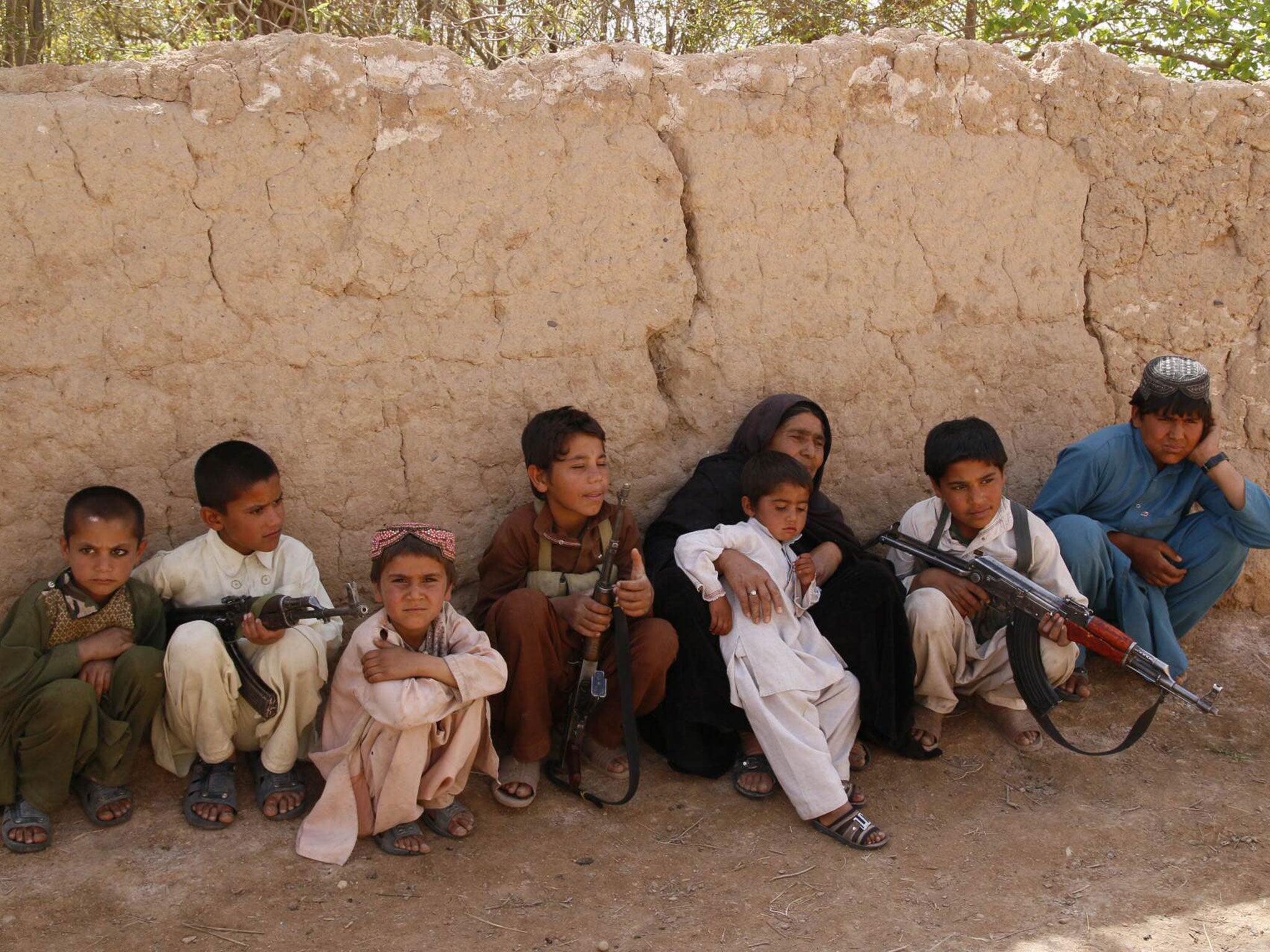Life in the Taliban after Mullah Omar: Afghan Islamist commanders reveal how the organisation has split and lost its roots
Bilal Sarwary speaks to some of the Taliban's most feared commanders across Afghanistan and finds that, despite the trauma at the top of the organisation, the appetite for the fight remains undimmed

Qari Baryal should have been dead long ago. The Taliban commander’s brother, wife and father were killed in a US air strike in 2008. By the time the bombs fell, Baryal, dressed as a shepherd, had slipped away.
Today, as factions within the Taliban continue to undermine the peace process engineered by President Ashraf Ghani and bombings strike Kabul, Baryal is unrepentant. The 29-year-old says the death of Mullah Omar, the Taliban’s elusive one-eyed leader who sheltered Osama bin Laden, confirmed in recent weeks but known among senior Taliban leaders years ago, makes little difference to the group’s aims.
Speaking to The Independent from a district in Zabul province near the Pakistan border, Baryal, who still commands 90 fighters, says: “We will continue to fight until sharia law is restored. I was not fighting for Mullah Omar or anyone, I was fighting for the cause and the cause is still there. I will die fighting.”
He says that in recent years, he survived 10 or 11 execution raids designed to kill him and his group. He says: “The Taliban is losing its roots. [There is] a fight over its leadership. Commanders like me are in charge. All the people who fight for me are young. They all believe in fighting. We will not surrender, I am going to continue to fight.”
Baryal’s comrades continued that fight on Monday when a suicide bomber struck near Kabul’s international airport, killing at least five people. It was the latest in a series of attacks in the capital since the death of Omar was announced. Mr Ghani blamed Pakistan for continuing to support the Taliban. “We know they have sanctuaries there, we know they are active there,” he said. “We need all those activities to be stopped.”
He added: “We hoped for peace, but war is declared against us from Pakistani territory; this in fact puts into display a clear hostility against a neighbouring country.”
The Taliban claimed responsibility for the suicide attack in a crowded area outside an airport checkpoint, saying it was targeting “foreign forces”.
Baryal, whose name has appeared on a “kill list” of Taliban commanders, says that Mullah Omar’s death was not unexpected.
“He was not going to live forever – he has done his job and given us leadership and vision. That vision is jihad and fighting. I have survived and I am going to continue to fight.”
The death of Omar has split the group into separate factions, as has the emergence of Omar’s former deputy, Mullah Akhtar Mansour, as the Taliban’s leader. In reality, Mansour has led the group for a long time. He is seen as close to Pakistan and, it is claimed, was pushed into peace talks by Islamabad.
In Ghazni province, south of Kabul next to Zabul province on the Pakistani border, Ahmad Gul commands a small group of 35 Taliban fighters. Unlike Baryal, he says he could make peace with the military. “We have to wait and see. I will make peace when there is a clear mandate – both religious and political – from the leadership.” The 38-year-old adds: “Then, I will put down my weapon. Now there is a battle over power.”
Those defending Afghans from the Taliban are equally determined, however.
Malik Kakar is a district governor in Zabul. He says he has lost 26 members of his family to Taliban attacks, but adds: “I would make peace with the Taliban even if 150 members of my remaining family and clan were killed. Peace is vital for the country. I knew peace when I was a soldier in the 1970s. The world couldn’t find a military solution.”
He says: “If the Taliban repent for what they have done, I am willing to make peace.”
The father of 24 and grandfather of 96 adds: “Since Mullah Omar’s death, two big commanders have got in touch and said they are willing to come and surrender, but the younger Taliban – the more militant ones – want to fight still. The Taliban used to be one body for making decisions and fighting. Now it’s total chaos.”
He says explaining he would entertain peace talks is “very difficult” to explain to members of his family. “They hate the Taliban,” he says. “There are orphans and widows. It has polarised my own family.”
Feroza, a 53-year-old and Afghanistan’s only female police commander in Sistani, a village of mud huts in Marjah district of Helmand, lost 19 members of her family to Taliban attacks.
She says: “Even if there is only one member of my family left, I will fight the Taliban. It’s not up to me to make peace.”
The grandmother, whose grandchildren and husband fight under her command, said: “Even if I make peace, the clan will not make peace. Everyday when I leave my home there is a graveyard about a kilometre and a half away. It is my family in it. I cannot make peace with the people who put my family in the graveyard.”
In Feroza’s district, police often fight drug lords growing opium – Afghanistan’s cash crop and a claimed source of funds for the Taliban.

Police commander Baaz Gul Mujahid, 57, a mujahedin who fought against the Soviet army during its invasion of Afghanistan in the Eighties, said: “When thousands of Americans came in 2010 I lived near the frontline and the Taliban fired from near my house. When I told them not to do this they got angry and one of my sons got killed. I told the Americans they were fighting from homes.”
Mr Mujahid became the first Afghan militia commander with American support. He survived at least seven assassination attempts. He says: “We have no option [other than] to make peace with the Taliban, but only if we know who is leading them. Taliban commanders tell me they want to come to our side. They say there is lots of fighting. It’s going to be a long and painful process.
“Even if I want to make peace there is a lot of stubbornness from my fighters who have lost family. It is not a call only I can make. But I want peace.”
Join our commenting forum
Join thought-provoking conversations, follow other Independent readers and see their replies
Comments
Bookmark popover
Removed from bookmarks